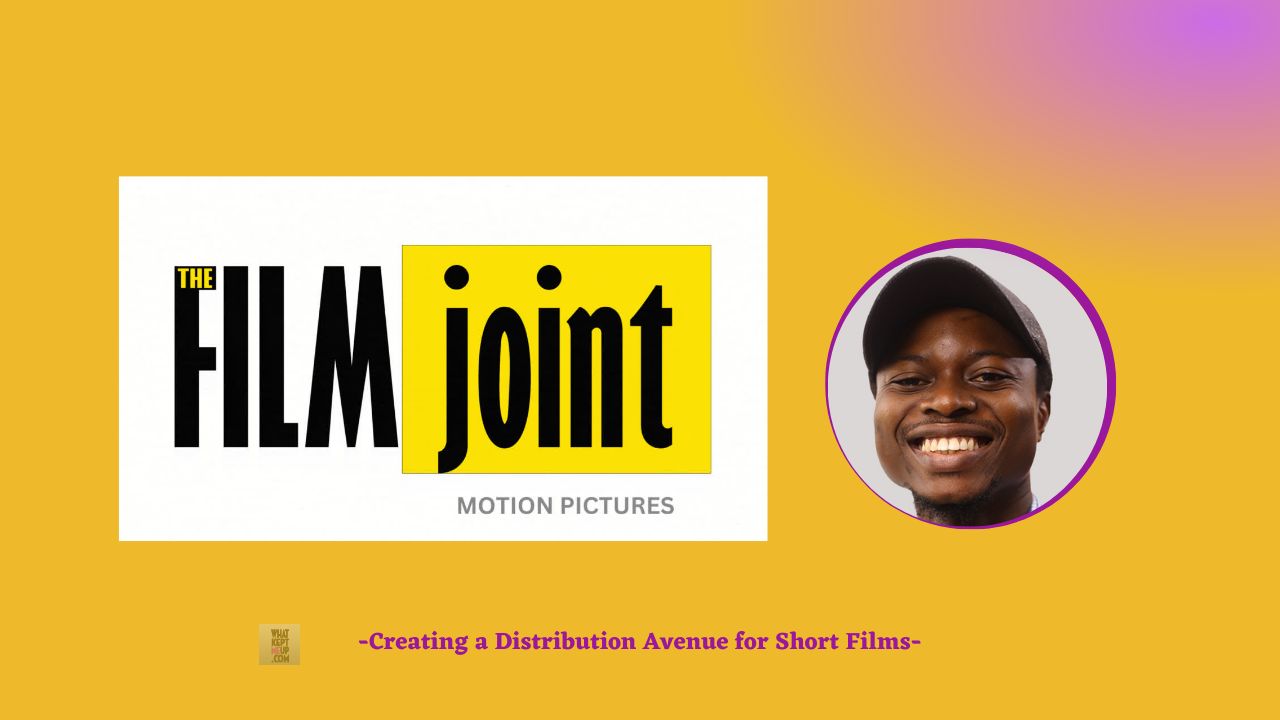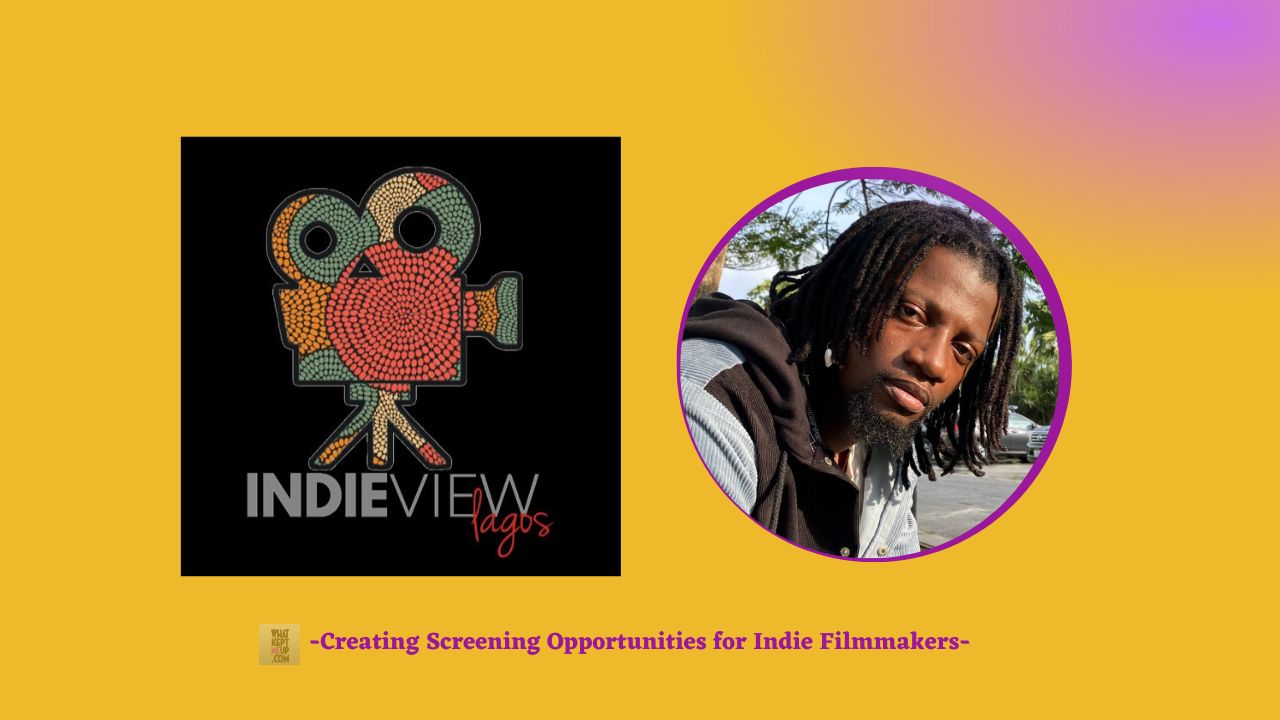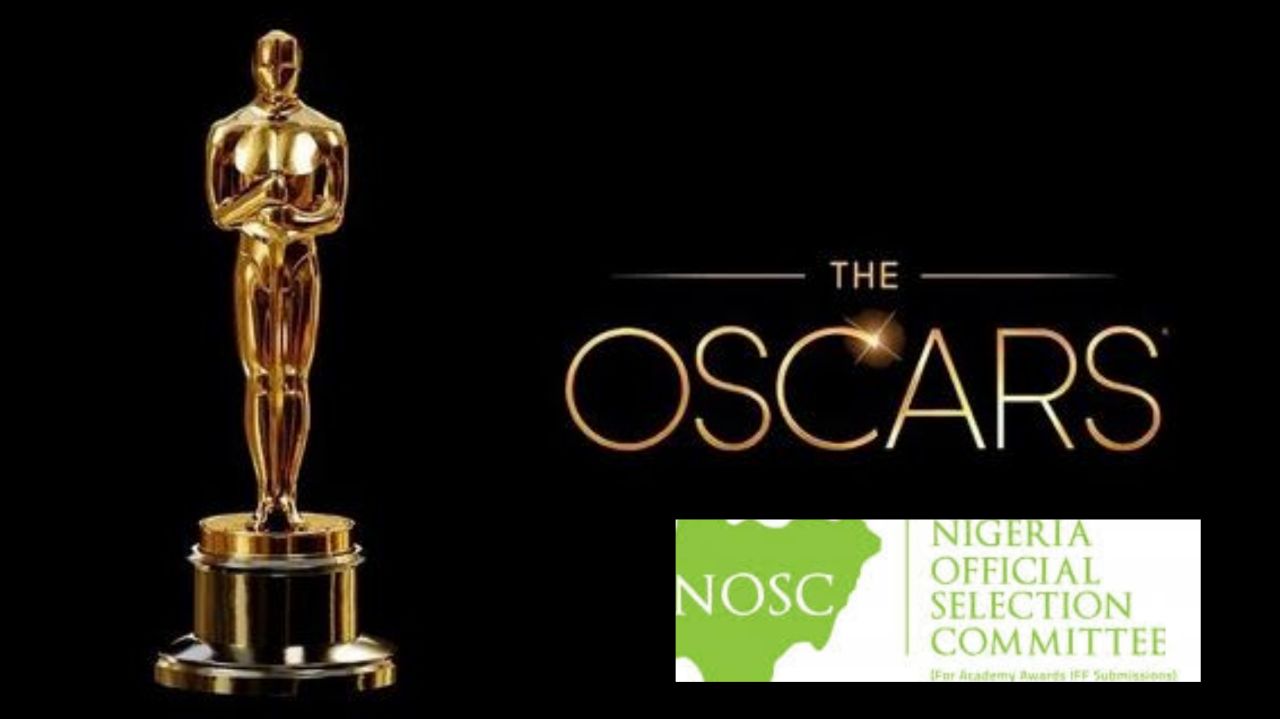Editor’s Notes: Beyond the commercial theatrical options, there are some film events that try to bring film lovers together to enjoy the communal exhibition of a movie. In this monthly series, titled The Tentmakers, we will interview the minds behind such collective viewing in Nigeria, in order to document their origin stories, their thoughts on the current state of cinema and other related details that capture their events. They are the tentmakers, boosting the theatrical spirit and cinema culture however they can under tight budget, low costs and periodic events.
The previous issues are available here.
Picture this: Rather than spend two hours on a feature film on your preferred streaming platform, you opt for a 30-minute short film instead. Here is another scenario: You watch a 20-minute short film in the cinema on a day you are running out of time, instead of spending close to 3 hours on a feature. The FilmJoint has big dreams for the distribution of short films, and they think it is only a matter of time before short films go mainstream even in cinemas. Besides, most people have low attention spans these days.
The FilmJoint is a platform focused on promoting and marketing quality short films from different parts of the world, thereby giving short film filmmakers the opportunity to make returns from their projects and eradicating the prolonged belief that there is no market for short films.
In this exclusive interview with Gbenga Adeoti, the Founder and Managing Director of The FilmJoint, he shares the big dreams he has for short films and their distribution and the importance of a community for independent filmmakers. Being a filmmaker himself, he talks about the struggles independent filmmakers face with profit-making, and how through The FilmJoint, he is solving these problems from the perspective of a filmmaker, despite the risks he is faced with.

What did you have in mind when you started The FilmJoint? What were the circumstances that led to its conception and birth?
The idea for The FilmJoint came as a need to solve a problem. At the time, I had a lot of questions going on in my head about people making short films as proof that they can create something. I believe it’s more than that. During the period the idea came, I had done three short films, and a lot of resources and money went into them. Then I thought to myself that I couldn’t spend that much and not make profit. Some of them were made with the intention of being put in the cinema. I said to myself, “Short films can be seen in the cinema too”. It was more of me contradicting conventions, as my emphasis then was on short films getting into the market and bridging the gap. The idea was to create not necessarily a festival, but a platform where people will be able to show their films. Why not promote the short films and then distribute them? The end goal for The FilmJoint is to distribute short films. That joy of having your short film monetized is what we are after.
For instance, I made a film in 2022, and I’ve refused to release it because I spent money making it. I have grown to a stage where I’m not making films to prove a point anymore, but to make a statement and to earn from it. So it’s more like me putting myself in other people’s shoes, and I have to solve the problem rather than complain. The FilmJoint’s intention or goal is to distribute short films on platforms such as TV and streaming platforms. It looks unachievable, but it’s a risk. A couple of people have asked me, “How would you make more money? How would we get this film on platforms? People do not watch short films”. Each time I encounter such questions, my response is always “I knew these things before I started”. It took almost a year for me to sit down and say “Let’s do this”, and by doing that, I was already prepared to fail. The very first question I asked myself was, “Gbenga, are you ready to fail?”, and I said, “Yes”. That’s how The FilmJoint came about on the 1st of December 2022. I spoke to a couple of friends and then we set the ball rolling.
What are the core goals of The FilmJoint? How have you been able to carry these out for the past months?
It has been quite interesting, to say the least. One of the strategies we’re using is to hold constant Twitter (X) spaces to pull filmmakers and cinephiles together to educate ourselves about film. I noticed that most of the conversations that are out there are more about film criticism, and I don’t like criticism. First of all, I don’t like competition. So even when the idea for The FilmJoint came, some persons asked me if it was going to be a competition. We have an award by the side, but even the award is not competitive in nature per se; it’s just an appreciation of good short films and appreciation of the consistency in doing this thing that other people run from.
We know that there is no market, as people believe, but we are demystifying that; it’s just a matter of time. For instance, I find it difficult to watch long films because my attention span is very short, and I believe a couple of people fall into this category. In fact, we took a survey before we kicked off The FilmJoint and a whole lot of people said the same thing. Secondly, people said they want to see more short films, adding that the reason they don’t see them as much as they want to is because the films don’t get enough promotion. That is why we are very key with promotion. This does not mean we would not promote feature films, but our core goal is short films. We’re actually talking to a couple of people and trying to reach out to platforms. Let me blow your mind: for now, to be very honest, I’m not expecting a positive reply from any platform. If the platform deal comes, fine. But if that does not come, we won’t be disappointed. We’ve spoken to a couple of people and everyone who we’ve spoken to so far is interested.
What are the major challenges you have faced running The FilmJoint for close to a year?
First of all, we are trying to grow our numbers and reach as many people as we can. So for now, we’ve not actually hit any heavy rock that would shake us. We are just taking it step by step. The basic challenge is the idea of getting a platform because when you have a goal, that goal is usually a challenge. We have a strategy for that because we don’t want to depend on platforms alone. We are still trying to see all the methods that short films can make profit. It is going to take a lot of time, though.
What is it like bringing people together in a busy city like Lagos, especially now that streaming platforms are more preferred these days?
Gathering people in a city like Lagos is not easy. The premiere [the 1st edition held in June 2023] also fell during the period when the fuel scarcity [in Nigeria] had just begun due to the subsidy, so we were afraid that the increase in transportation costs and heavy rainfall would prevent people from coming out. I was surprised that we started and ended the event at the exact time we were supposed to. It didn’t also feel like there was heavy rainfall or some people did not make it. One of the guests on the panel session had hitches and couldn’t make it as a result of the rain, but someone easily filled in for him. I’m really grateful for that. In a city like Lagos, planning an event is one thing, but having people attend is another. It is hard for people to spend money on something in this part of the world except it has some value. So, the people who made it to the premiere valued what we were trying to do. We are greatly honored and humbled by that.
How would you describe the benefits that cinema culture has over streaming? Why should people gather to see a film when they could easily see it on their smartphones from the comfort of their homes?
I agree with you that we are in a digital world where you can simply stay at the corner of your house and see anything in the world. But cinema will always be cinema. I studied Theatre and Film, and there is a feeling that stage brings. It’s an entirely different thing. It is the same for film. First of all, cinema is experience. So if you go to a cinema and do not have any experience, then I think the purpose is defeated. The reason people go to the cinema is to have an experience, network and connect, and have fun. For instance, I go to the cinema because I’m a filmmaker, and I try as much as I can to make it a culture because I have to watch films. I have to also encourage other filmmakers by paying to see their films.
Also, I love the fact that there are different films for different platforms. You can’t see most of the cinema films on TV, and you can’t see TV films in the cinema. This is changing though, because of the advent of streaming platforms, we find films that have gone to the cinema on streaming platforms. I have my philosophy, though. For instance, inasmuch as I knew that Brotherhood was coming to streaming platforms, I wanted to have that cinema experience and encourage another filmmaker’s work, so I had to see it in the cinema.
Cinema is also important for a filmmaker because there are things you see on the big screen that you will not see on small screens in terms of picture quality, sound and feeling. When you go to the cinema and see a film that you are pleased with, you will not want to make anything below that standard. But if you watch the film on your phone, you won’t experience that. Also, cinema gives people in our line of work the opportunity to network, share experiences, and move on to the next job.
You may not make so much of your money in the cinemas, but there are some people who would wait for the film to come to the cinema. You want to see how people feel in real time about this film—not just from behind a screen and tweeting on social media about the film. No, it’s not enough to talk about the film. You have to take real-life physical testimonies, and that is where The FilmJoint also comes in: premiering films and inviting these filmmakers to talk about their films. They see the reaction of the audience and take questions, and all that positive or negative feedback would help them do better.
What roles do gatherings play in film as a cultural art form?
Film is an art form, and having people gather together to appreciate art is very important. It’s like artists (painters, sketchers) who exhibit their art. Those works are incomplete until they are viewed or bought. The end goal is always doing the work to get seen, and the same applies to film. So the purpose of every film is to get it seen. Gathering plays an important role in film as a cultural art form because it is a culture and it needs to be encouraged. By encouraging this culture, you are not letting that art go into extinction.
What is the process of getting funding for the project and activities of The FilmJoint?
For the premiere, we had no sponsors. It was a self-sponsored thing, and the assistance we got was from individual well-wishers. We sent out proposals but unfortunately, most of them let us know they were not open to it for now. We got financial support from my friends and partners. When you are working with an empty pocket, you don’t know how the thing is going to happen, but we did it and had a successful event. We hope for the next edition to be bigger and I hope we get the necessary support needed to pull it off.
What can be done in order for the Nigerian audience to better appreciate cinema?
First of all, a whole lot of people complain about our story. Yes, we’ve improved, but we are not there yet. We’ve come so far and we are doing better, but for cinema to be better appreciated, we need to do more good works. The moment moviegoers begin to see the value and satisfaction in the films they pay for, it would increase the number of people going to the cinema. It would even pose a form of “threat” to streamers because everything going to streaming platforms would have gone to the cinemas first. The people who go to the cinemas are not really seeing our films, and I will not blame them because a lot of people complain about our films. Hollywood did not just start yesterday. We can’t measure their success stories with ours, but at least we can agree that Nollywood has come a long way. We also need to work on our picture quality.
 The Filmjoint Awards 2024: Highlights and Award Winners
The Filmjoint Awards 2024: Highlights and Award Winners
What roles do Nigerian filmmakers have to play in cinema culture? Why should filmmakers have cinematic experiences in mind even before making their films?
It is very important to have cinematic experiences in mind before making a film. For instance, I remember making one of my recent short films, and the post-production for the sound was very deliberate. Unlike the convention of just laying your sound with your Premiere Pro software, and making the editor serve as the sound designer, we took the sound to a proper sound studio and had a sound engineer work on it. When it gets to the cinema, the experience will be entirely different.
Funny enough, these little details are what makes foreign films different from ours. There are little things that we often overlook in this part of the world. A good sound is very important. Having that in mind before even shooting is key because the experience would suit the kind of speakers already in the cinema. Like I said before, cinema is an experience and you want people to experience your picture quality, your sound quality, and your production quality, so that these people feel immersed in the imaginary world you have created. You don’t want your audience distracted, because people can be distracted by very little details. They will lose interest in the story you are trying to tell if you don’t do things well. For you to create a good name for yourself, you have to do good works that will stand the test of time and that people will continually talk about.
I’ve always talked about enlightening people more about film. It is not enough to have experience in filmmaking; you have to take a professional course. Know, at least, the rudiment of what you are practicing, especially if you’ve chosen it as a career path for yourself. If you don’t, you’re going to spoil the good works that other people are doing out there. It’s because of this that we see any kind of film out there today, and begin to generalize that Nollywood is not doing enough. Nigerian filmmakers need to really know the craft.
And we need to promote our films. A lizard that falls down from a wall and looks around to see that nobody claps for him should clap for himself. That is what we need to do for ourselves and the films from other colleagues as well. Everybody has their audience and a number of people they influence. By promoting somebody else’s film, you are influencing your followers or audience to see that film. You are increasing the numbers; promoting the cultural form, and creating a steady and sustainable cinema culture.
What needs to be improved about Nollywood’s storytelling and filmmaking for an improved cinema experience?
We need to do better in the stories we tell. Creating a story is one thing, and telling it right is another thing. So you don’t just want to create any kind of story, but a good, believable, and simple one. You don’t want to westernize our stories.
There is a need for people to have knowledge of what they are doing in terms of choosing filmmaking as a career. There is a need to learn the rudiments and the principles of filmmaking. Filmmaking is a serious business and you don’t want to spoil the effort of other people. I do not necessarily blame people who bring in people from other countries to work on their projects in Nigeria. A couple of factors may contribute to that. It could be that they are trying to collaborate with different filmmakers around the world, or it could be from a place of sentiment, where they feel that nobody in this place can help them achieve what they’ve pictured. For instance, while working in Port Harcourt, I experienced people bringing crew members from Lagos. They always believe that the best hands are in Lagos. This is the same thing in our industry, where there is this belief that the best hands are not in Nigeria. Filmmaking is a profession. You don’t just don’t want to be somebody that has a skill, but a professional in that field.
Lastly, you cannot tell a story that you do not know much about. For instance, you need to do research and a couple of persons have said that our research is very poor. I read a tweet from a friend who is in the medical field. The medical personnel went through a script in the hospital intended to be used for a shoot, and they were impressed. There have been situations where people don’t do research about other professions, and it reflects in the script. I personally ask professionals in those fields the questions. I’m not just telling a story because I want to make money. There is the aspect of making money, and I will not say look at one over the other, but try to balance the equation so that you make money while putting out good work. A senior colleague of mine says “Do one for them, then do one for yourself”. The one for “them” is for money, and the one for “yourself” is for art’s sake.
What was your last best cinema experience? Where did you see the film, and which film did you see?
My last cinema experience was in IMAX and I saw Avatar: The Way of Water. It was intense and wonderful. I love cinema.
What’s one feature/thing you would change (add, remove, or alter) in our cinemas at the moment, for a better cinematic outing?
I love feedback a lot, so having a feedback box that enables the audience to give feedback to a filmmaker is something I would add. This is different from feedback on social media. I believe it would improve the films being made. There is not enough conversation about our films. There are not enough platforms to invite you with your cast to talk about the film. Real-time feedback and conversations are important.
What was your selection process for the films you screened at The FilmJoint’s premiere? What were some of the things you looked out for?
We are trying to select good short films without making it competitive in nature. We nominate films that make the final list, and the jury then judges them for the premiere. We don’t influence the selection process. The members of the jury are people in the industry who we all know, and whose works have stood the test of time. We don’t want to give room for any low standard, which is why we involve people who have good eyes for film. We are not taking chances, because for films to get on platforms, we have to take films that are not below the standard of those platforms. The film has to have an exceptional storytelling style. There is no new story, it is how you tell it that is new. The film also has to have a good picture quality. The sound design and production design have to be top-notch. We have a very high taste. Since the films are from all over the world, these standards make it easy for them to “compete” on a global stage. Make films that are relatable to not just your environment, but any part of the world.
You can find more information about The FilmJoint on their Instagram page.
If you organize such film gatherings and would like to be considered to feature in this series, kindly drop a short message.
Share your thoughts in the comments section or join the conversation on Twitter.
Sign up: Keep track of upcoming films and TV shows with Google Calendar.







7 Comments